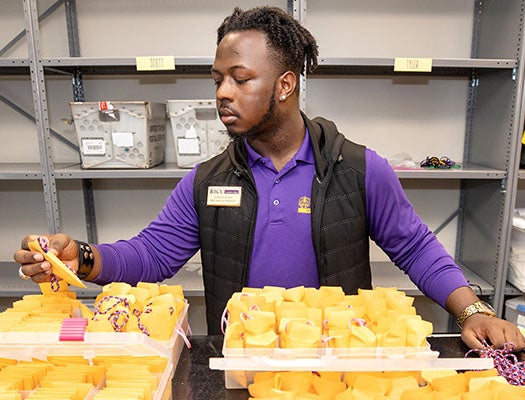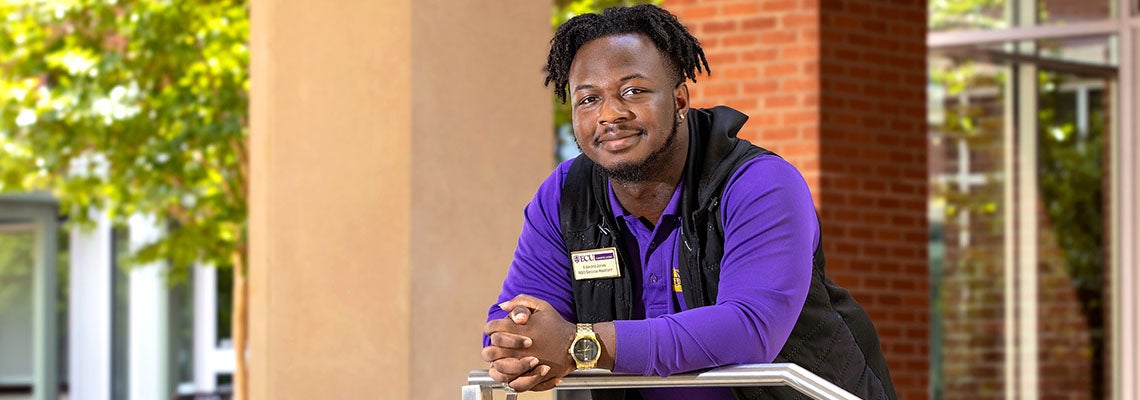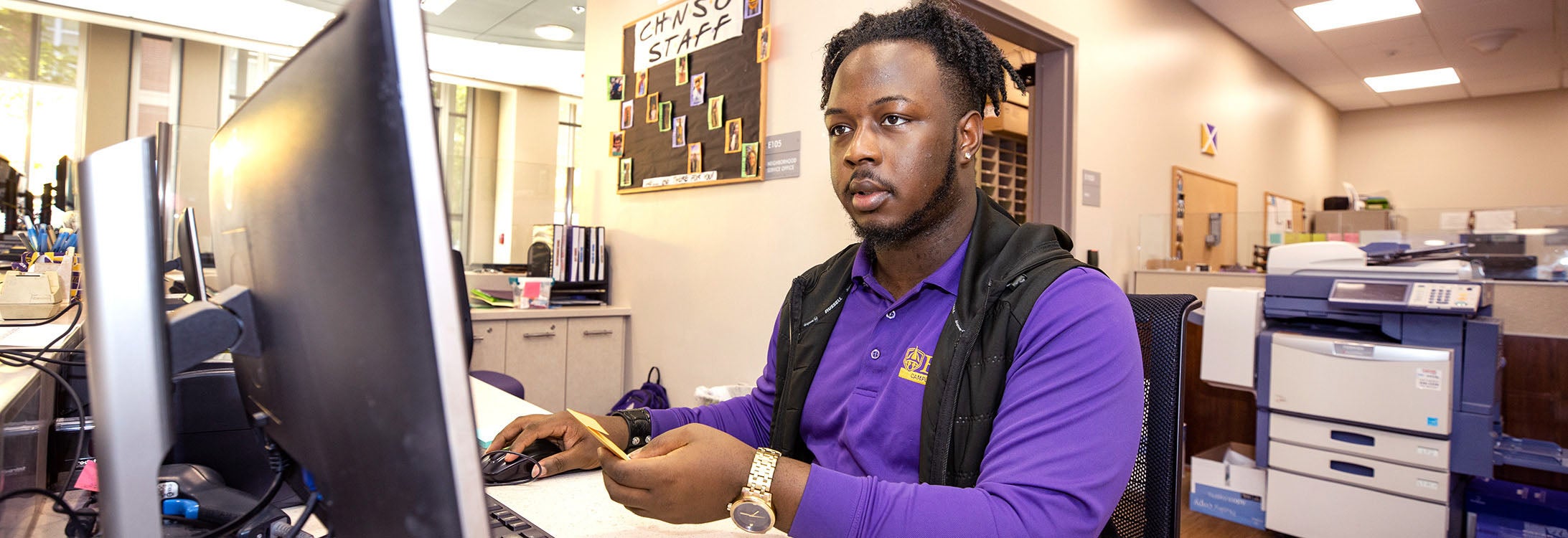ECUWORKS
Pilot program lets students work for their rooms
During the 2018-19 academic year, East Carolina University launched a pilot program aimed at reducing student debt. Campus Living’s ECUWorks program gives first-year students the opportunity to work on campus in exchange for room and board rather than a paycheck.

Edward Jones is one of 38 students who participated in the first year of the ECUWorks program.
Brian Mattern, associate director for finance at ECU Campus Living, said the idea came about in 2017 as the department’s associate vice chancellor, Bill McCartney, was looking at ways to help save students money. Based on models used at other institutions, the ECUWorks program is designed to be mutually beneficial.
“Nothing is free, so we wanted to find a way to (reduce the cost for students) while also getting something back for the department,” Mattern said.
Students work about 15 hours a week in campus jobs with Campus Living, ECU Dining Services and ECU Facilities Services. They also participate in targeted programming aimed at increasing engagement and student success. The sessions include topics such as academic skills, sustainability, wellness and lifestyle, and stress management.
Edward Jones, one of 38 students who participated in the program’s first-year run, has stayed on for the summer, working in the Neighborhood Service Office (NSO) on College Hill. Students who participate in the program are able to return the following year if they are still going to live on campus, and nearly half of the first group has elected to do so, Mattern said.
For Jones, the program allowed him to live on campus rather than commuting an hour each way.
“This opportunity saved me in the sense that I really wanted to stay on campus for the community,” he said.
Jones said ECUWorks has helped him build friendships with other participants thanks to the introduction dinner and the group programming. The program also helped Jones develop time management skills early on in his academic career.
“It was really hard to balance work and class at first, especially since I did not choose my first semester’s classes,” he said. “Second semester was better for managing work and school. I had to plan my schedule a little better and spread out my involvement.”
Jones, who hails from Duplin County and is studying music with a focus on voice, hopes to become a choral director and voice teacher.

Students in the ECUWorks program work for about 15 hours per week and participate in targeted programming in exchange for free housing on campus.
Mattern said he’s excited to have Jones and other students returning to help guide next year’s participants.
“They’ve got the best understanding of this experience because they’re the only people who have ever been through it,” he said. “We thought they’d be a great resource with these new students to help them with the transition.”
Having student workers who live on campus is also beneficial during weather events.
“When we have a snowstorm,” Mattern said, “there’s no commute; they’re already here.”
So far, he said the ECUWorks participants have fit seamlessly with both paid employees and other student workers.
“A lot of what I hear is that they love the experience and they love the staff members that they’ve had an opportunity to work with, whether it’s over in dining working with the Aramark employees or in the NSO working alongside our student employees,” Mattern said. “There’s really been a good sense of camaraderie and kinship both among each other and with others.”
Even some of those who aren’t planning to live on campus next year have expressed interest in continuing to work for Campus Living as student employees, he said, leading to opportunities for them to stay engaged with campus life.
“If we bring them in as freshmen,” said Mattern, “hopefully by junior or senior year they still want to be a part of our department … and they’re already experienced and have gotten that training at a younger age.”
The biggest value in the program, Mattern said, may be the opportunity to get students involved on campus as soon as they arrive.
“This program helped me realize all that ECU has to offer,” Jones said. “It solidified my love of my school and made me desire to work within ECU for the rest of my college career.”
For more information, visit https://housing.ecu.edu/ecu-works/.

Almost half of the students from the first year of ECUWorks, including Edward Jones, have elected to remain in the program for their sophomore years.
